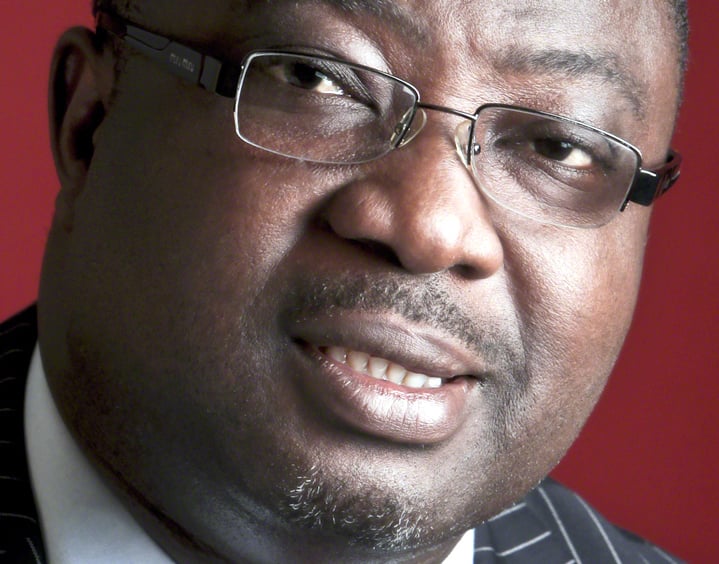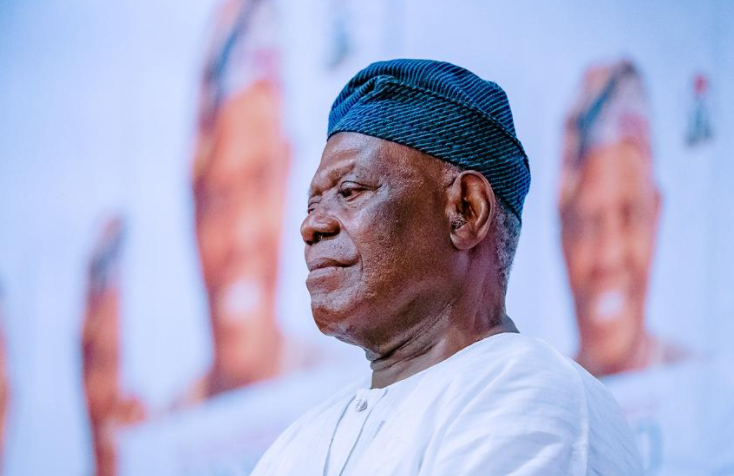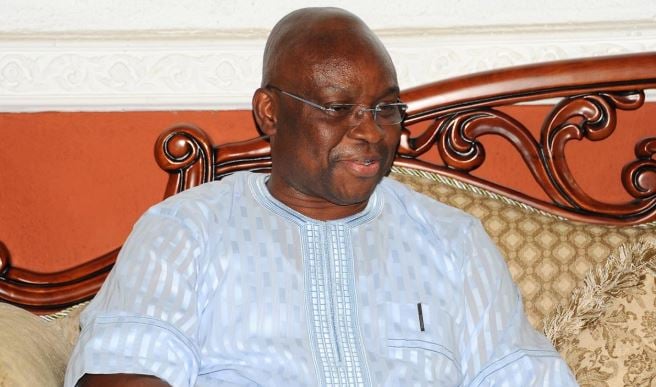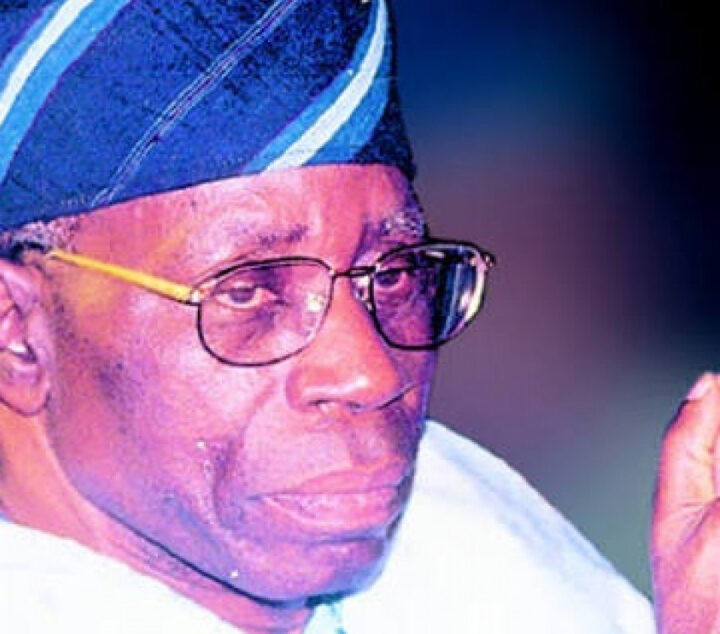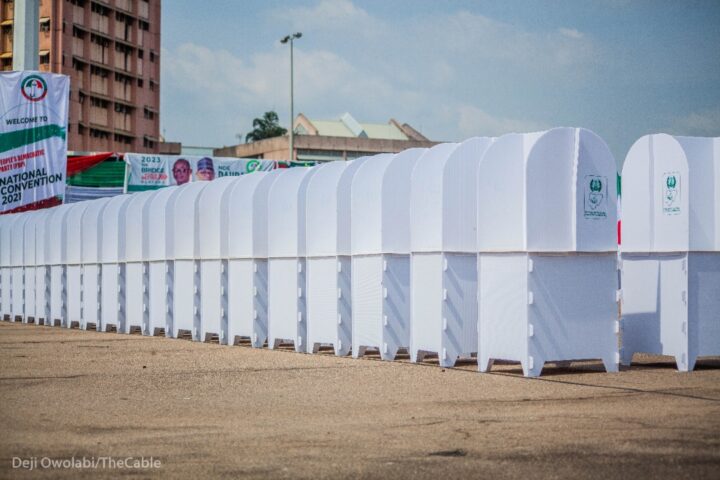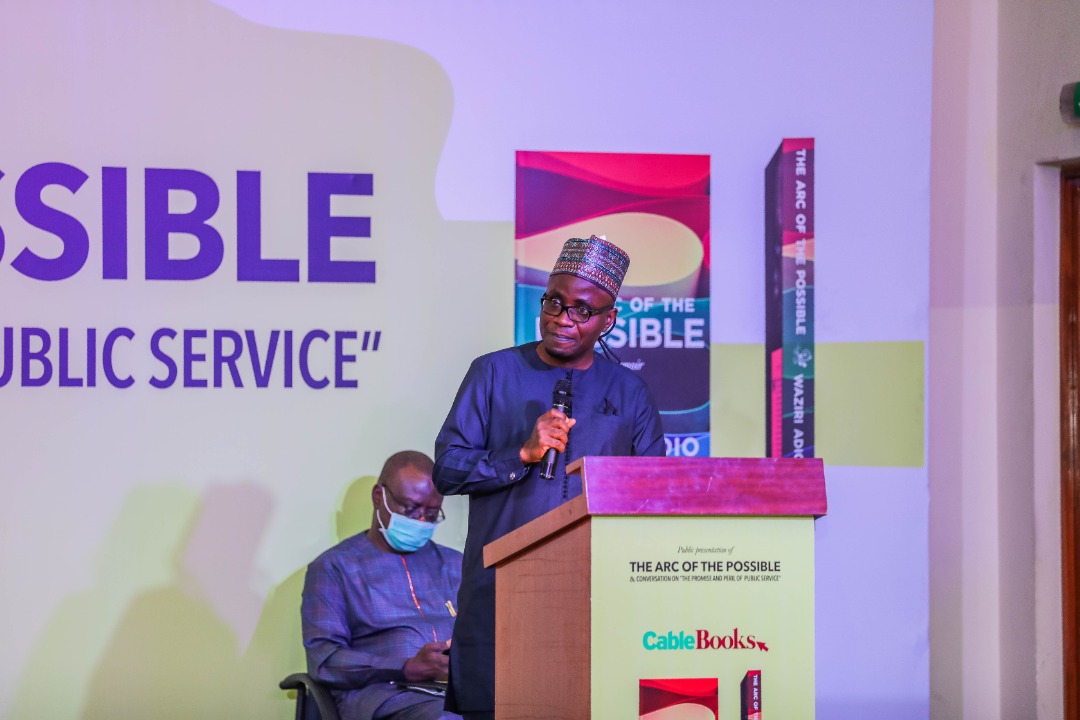More than two weeks after Bisi Akande’s ‘My Participations’ was presented to the public at an impressive ceremony in Lagos attended by President Muhammadu Buhari, the book has not ceased to arouse interest and stoke controversy in some quarters. This is particularly noteworthy given the fact that the ultimate measure of the importance of any book or academic exercise is whether or not it generates people’s interest and contributes meaningfully to the body of knowledge.
In writing the book, Akande was out to present his own life history and political trajectory in the hope that it would enrich public discourse and help advance democratic good governance in the land. Has that goal been achieved or more appropriately will it be achieved? I think so. I hope so. Let me say from the get-go that ‘My Participations’ is riding on Baba Akande’s well-acknowledged character and integrity. A writer or author that lacks integrity lacks everything. Baba had been sold early in life on those noble values of honesty, integrity, conscience, courage, hard work, perseverance, and the importance of a good name among others.
It was, therefore, no surprise that he adored the late sage, Obafemi Awolowo, reading all his books and interventions in public affairs. Writing on page 17 of ‘My Participations’, Baba stated: “It was not surprising that as I was growing up and becoming more knowledgeable, I became totally indoctrinated and began to study Awolowo and his Action Group. I read all his books and vowed to emulate him in self-discipline, fearlessness, dignity, courage, and patriotism”.
Sired by parents who worked so hard yet found it difficult to convert the hard work to wealth, Baba Akande literally tutored himself. Yet, without seeing the four walls of a university, except for the occasional courses he took later in life, by age 22, he was already a qualified accountant. Akande has also long made his name as a no-nonsense public administrator who insisted that government should not be business-as-usual and should follow the principles of efficiency, accountability, probity, and transparency as obtained in the private sector. He refused to back down on his ideals or kow-tow to his assemblymen even in the face of impeachment threat.
Advertisement
In ‘My Participations’, some of the political actors mentioned were taken on their words. Baba Akande provides detailed accounts of events and developments. He gives exact dates, those present, what they said, what he said, the issues at stake, in some cases the figures involved; where he makes payments, he provides receipts and other details. However, it is reasonable to expect that those who have found themselves on the negative side of the accounts recounted in the book would naturally fight back rather than remain silent and lap it up. However, it is my considered view that notwithstanding all that has been put out in response to or to counter some of the accounts in the book by those who believe they have been wrongly hit or received the sharp tongue of the author, that integrity of Baba Akande and the high quality of the book remains unassailable.
Backlashes are unavoidable in a good book because an honest man like Baba Akande “speaks the truth; don’t expect him to speak sweet,” to paraphrase author Amit Kalantri. We must also note that autobiographies are the personal recollections of the writer. Those who feel slighted or uncomfortable with what has been written are free to come up with their own accounts. This is welcome and will also help to push forward the discourse. Nobel laureate Wole Soyinka had forewarned about this tell-it-all, razor-sharp book in his foreword, saying the book is “one historic reckoning that will make many uncomfortable. Many will be reminded of the roles played by them, which they would rather the nation, indeed the world, forgot”. ‘My Participations’ is not all about political actors and their affairs. Akande makes serious efforts at advancing democracy and good governance as he promised. How has the book advanced the debate on these twin issues?
These are just some samplers: Number one, Akande writes against money politics, believing people should be elected on the basis of merit and acceptability by their constituents. He demonstrated this in the story of his election to represent Ila-Orangun/Odo-Otin constituency in the 1977-1978 constituent assembly. Narrating the episode, he disclosed that a few weeks to the CA elections, a number of the councillors from his constituency who were to constitute the electoral college to elect Ila’s representative at the assembly, called him for a meeting. They told him how another aspirant had been offering N200 to each of them and advised him to give N3,000 to checkmate the said aspirant. “I refused bluntly and walked out on them in anger,” he wrote.
Advertisement
However, early the next morning, a wealthy Ila farmer, approached him, urging him to meet the councilors’ demand for N3,000 and promising to contribute half of the money. He spurned the advice and the offer of monetary assistance to bribe the councilors. Baba Akande refused to attend the palace meeting and did not return to Ila until a day after the election. At the end of the day, he won the election to represent the constituency at the CA. The lesson; this episode can be helpful in the ongoing debate about direct and indirect primaries wherein the former option flows on popular participation and acceptance as opposed to the latter, which is a delegate system that is tantamount to ‘cash and carry’.
Still talking about the ill of money politics, Baba brings out the sharp contrast between people-driven and money-induced leadership while narrating another story on page 257. He writes: “On the first outing of AD, Iyiola Omisore (senator) was in the same car with me when we joined Bola Ige’s entourage, which led Baba Abraham Adesanya to Osun via Iwo. Buoyed up by the excitement of the tumultuous welcome with which the grassroots political enthusiasts were receiving us and forming roadblocks from road junction to road junction with a view to persuading us to stop and talk to most communities that were not included in our original itinerary, Iyiola wondered how such huge crowds could be so freely and effortlessly attracted. He narrated how he would always distribute transport and feast money through his political associates during Sani Abacha’s military-political transition before people could be mobilised to welcome him or attend his meetings. I let him realize the difference between politics of credible personalities and the artificiality of money politics, which the military introduced to Nigeria”.
Two, with a fractious deputy and gluttonous assemblymen, that Baba Akande had a turbulent time as governor of Osun state (1999-2003) is never in doubt. Baba’s plans for the state were at variance with their own agenda. Akande wanted and planned to ensure due process in public procurement. Recalling his experience running the state, he writes on page 278 thus: “The implementation of the AD manifesto as contained in the booklet confused some members of my cabinet and attracted suspicion from the legislature. It is a compendium of what was then termed in Obasanjo’s federal government parlance due process”. “Unfortunately,” he added, “very few of the members of the executive and legislature had been exposed to the act of good governance and ‘the wonders’ of modern technological development beyond local government levels before coming to Osun state government”. The point here is: Baba had been a strong advocate of due process in conducting government’s business long before he got to office in 1999.
Three, when Akande disclosed in the book that there is no restructuring in the APC constitution, many were surprised and shocked. However, the APC had since set up the el-Rufai committee, which made far-reaching recommendations regarding restructuring. Now, APC members and sympathizers can put pressure on their leaders to adopt the report and insert it into their constitution. Four, in the book, Baba Akande unwittingly opened the debate on the unending controversy over the national assembly’s exercise of its power of appropriation. Drawing from his experience with his house of assembly, Baba writes: “I know as a member of the constituent assembly (1977-1978), which enacted the 1979 constitution after which the 1999 constitution was patterned, that the house of assembly has enormous powers for mollification and provocation, depending on the actors and the situations”.
He added: “The indiscreet use of the powers of provocation has destroyed irretrievably democracy in Nigeria since 1962. That is why I am sad to observe that every house of assembly in Nigeria today particularly the national assembly, has been unduly emphasising the powers of provocation most dangerously since the beginning of the present democratic experiment”.
Advertisement
Given his position on the matter, he writes: “I quoted sections 120 (3) and 121 (1) of the 1999 constitution of the Federal Republic of Nigeria and emphasized that the powers of the legislature about budgetary and monetary allocation are limited to the vetting and scrutinising the financial estimates of a state for any particular financial year before the commencement of that financial year”. Many, particularly members of the national and state assemblies, will disagree sharply with Baba Akande. That is the essence of the debate, actors canvassing their positions. It is also the kernel of ‘My Participations’.
Some idle minds have speculated baselessly that the timing of the book was designed to drum up support for Asiwaju Bola Ahmed Tinubu’s presidential bid. That is cheap blackmail. Those who make the claim do not know Baba Akande. He has rendered an honest account of his life journey as he recalls it. If he had any ulterior motive, he would probably not include many incidents and details that some have found rightly or wrongly controversial and provocative.
Rahman, former editor of THISDAY on Sunday, is media adviser to Asiwaju Bola Tinubu
Advertisement
Views expressed by contributors are strictly personal and not of TheCable.
Add a comment
